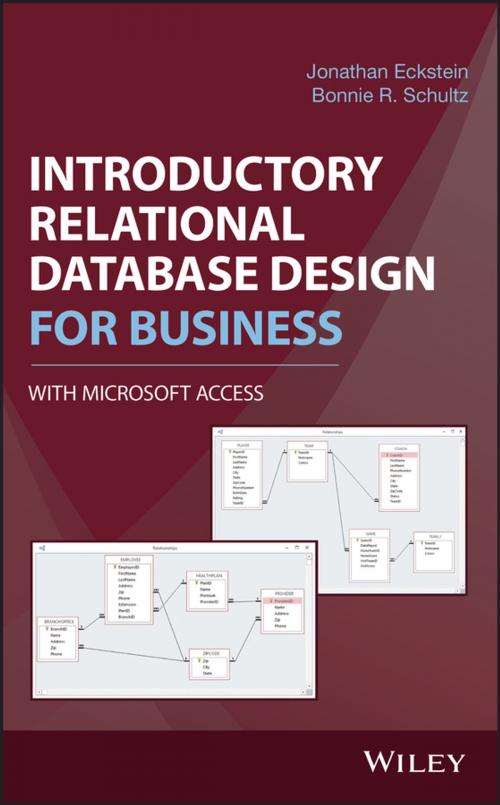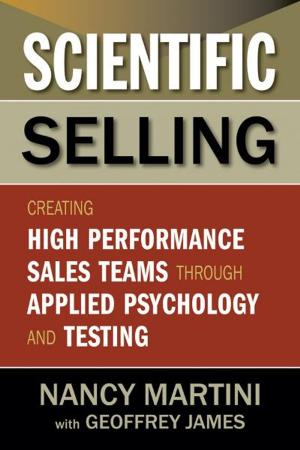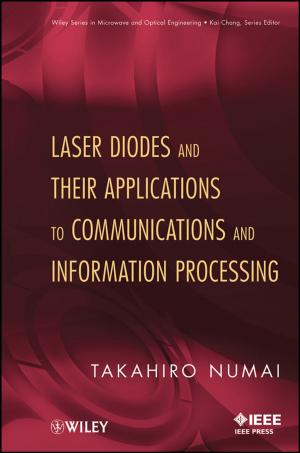Introductory Relational Database Design for Business, with Microsoft Access
Nonfiction, Computers, Advanced Computing, Management Information Systems, Business & Finance, Economics, Statistics| Author: | Bonnie R. Schultz, Jonathan Eckstein | ISBN: | 9781119329442 |
| Publisher: | Wiley | Publication: | November 9, 2017 |
| Imprint: | Wiley | Language: | English |
| Author: | Bonnie R. Schultz, Jonathan Eckstein |
| ISBN: | 9781119329442 |
| Publisher: | Wiley |
| Publication: | November 9, 2017 |
| Imprint: | Wiley |
| Language: | English |
A hands-on beginner’s guide to designing relational databases and managing data using Microsoft Access
Relational databases represent one of the most enduring and pervasive forms of information technology. Yet most texts covering relational database design assume an extensive, sophisticated computer science background. There are texts on relational database software tools like Microsoft Access that assume less background, but they focus primarily on details of the user interface, with inadequate coverage of the underlying design issues of how to structure databases. Growing out of Professor Jonathan Eckstein’s twenty years’ experience teaching courses on management information systems (MIS) at Rutgers Business School, this book fills this gap in the literature by providing a rigorous introduction to relational databases for readers without prior computer science or programming experience.
Relational Database Design for Business, with Microsoft Access helps readers to quickly develop a thorough, practical understanding of relational database design. It takes a step-by-step, real-world approach, using application examples from business and finance every step the way. As a result, readers learn to think concretely about database design and how to address issues that commonly arise when developing and manipulating relational databases. By the time they finish the final chapter, students will have the knowledge and skills needed to build relational databases with dozens of tables. They will also be able to build complete Microsoft Access applications around such databases. This text:
- Takes a hands-on approach using numerous real-world examples drawn from the worlds of business, finance, and more
- Gets readers up and running, fast, with the skills they need to use and develop relational databases with Microsoft Access
- Moves swiftly from conceptual fundamentals to advanced design techniques
- Leads readers step-by-step through data management and design, relational database theory, multiple tables and the possible relationships between them, Microsoft Access features such as forms and navigation, formulating queries in SQL, and normalization
Introductory Relational Database Design for Business, with Microsoft**Access is the definitive guide for undergraduate and graduate students in business, finance, and data analysis without prior experience in database design. While Microsoft Access is its primary “hands-on” learning vehicle, most of the skills in this text are transferrable to other relational database software such as MySQL.
A hands-on beginner’s guide to designing relational databases and managing data using Microsoft Access
Relational databases represent one of the most enduring and pervasive forms of information technology. Yet most texts covering relational database design assume an extensive, sophisticated computer science background. There are texts on relational database software tools like Microsoft Access that assume less background, but they focus primarily on details of the user interface, with inadequate coverage of the underlying design issues of how to structure databases. Growing out of Professor Jonathan Eckstein’s twenty years’ experience teaching courses on management information systems (MIS) at Rutgers Business School, this book fills this gap in the literature by providing a rigorous introduction to relational databases for readers without prior computer science or programming experience.
Relational Database Design for Business, with Microsoft Access helps readers to quickly develop a thorough, practical understanding of relational database design. It takes a step-by-step, real-world approach, using application examples from business and finance every step the way. As a result, readers learn to think concretely about database design and how to address issues that commonly arise when developing and manipulating relational databases. By the time they finish the final chapter, students will have the knowledge and skills needed to build relational databases with dozens of tables. They will also be able to build complete Microsoft Access applications around such databases. This text:
- Takes a hands-on approach using numerous real-world examples drawn from the worlds of business, finance, and more
- Gets readers up and running, fast, with the skills they need to use and develop relational databases with Microsoft Access
- Moves swiftly from conceptual fundamentals to advanced design techniques
- Leads readers step-by-step through data management and design, relational database theory, multiple tables and the possible relationships between them, Microsoft Access features such as forms and navigation, formulating queries in SQL, and normalization
Introductory Relational Database Design for Business, with Microsoft**Access is the definitive guide for undergraduate and graduate students in business, finance, and data analysis without prior experience in database design. While Microsoft Access is its primary “hands-on” learning vehicle, most of the skills in this text are transferrable to other relational database software such as MySQL.















